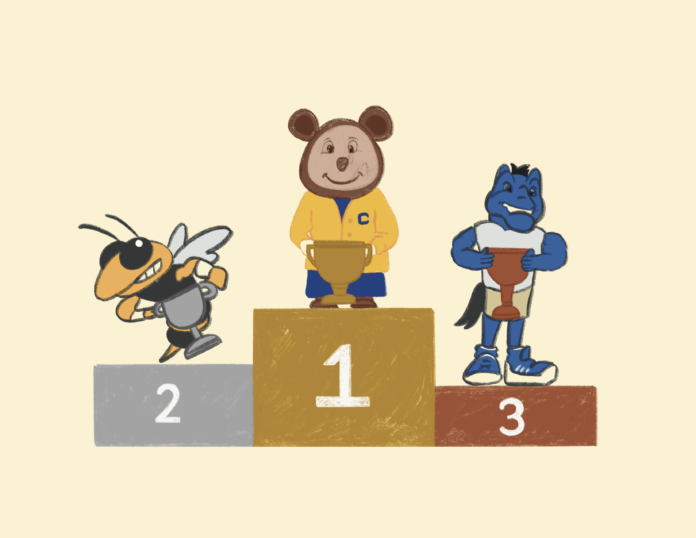What factors are considered in the WSJ ranking and what do students at Davis think?
By ZOEY MORTAZAVI — features@theaggie.org
On Sept. 5, The Wall Street Journal (WSJ) released its updated ranking for the top universities in the country. Both in the public school category and overall, UC Davis has seen a significant rise in its national rank over the last few years — but this year’s ranking has placed our campus at a record high.
Davis was ranked by the WSJ as No. 3 among public schools in the United States. The WSJ methodology weighs financial factors such as the salaries of college graduates more heavily than other factors in its ranking, which has caused some skew in terms of its usual top contenders.
To that end, the WSJ overall ranking was met with some controversy this year, and many people questioned their ranking process. Many college publications, including The Chronicle based out of Duke University, referred to the WSJ rankings as “a joke,” saying that they’re taking the wrong factors into account when establishing the national rankings.
Sophia Caster, a second-year international relations major, shared her thoughts on UC Davis’ rise in academic recognition.
“My experience at Davis has been amazing,” Caster said. “Davis’ rank moving up to the No. 3 public university is so exciting, and [it] makes me proud to go to a school that is getting recognized for its academics. I’ve never paid too much attention to school rankings, but I feel that school rankings can be important when choosing the school that’s right for you.”
Davis now ranks No. 33, tied with Georgia Tech, UC Irvine and the University of Illinois, in the list of overall best universities, according to the U.S. News & World Report’s 2025 ranking released on Sept. 24. Davis is also ranked at No. 198 in their list of best value schools nationwide. For public universities, U.S. News placed Davis at No. 9.
Popular rankings such as the U.S. News or the Forbes ranking, which placed UC Davis as the No. 43 best university, take many factors into account, including but not limited to graduation rates, first-year retention rates, borrower debt and the student-to-faculty ratio.
As these vastly different numbers show, none of the most prestigious college rankings consider the same characteristics or place universities at the same level. Phoebe Anzalone, a second-year American studies major, said that students should not base where they attend college on rankings alone and should consider other factors.
“I’ve never really believed that college rankings should be the sole deciding factor for students about where to go to college,” Anzalone said. “I don’t think any list of the best colleges should be what convinces you to go there. The actual school experience, location, organizations and so many other things should help you make that choice — not just how ‘good’ the rest of the country considers the college you go to.”
The Wall Street Journal has established that it weighs its rankings a little bit differently than others. Their formula reflects how schools improve their students’ chances of graduating on time, along with how much they boost student salaries following their graduation. The rankings are based on weighted factors that include student outcomes (70%), learning environments (20%) and diversity (10%).
“We look at how much a school improves students’ chances of graduating and their future earnings, balancing these outcomes with feedback from students on college life,” Wall Street Journal editors said in an article published by UC Newsroom. “Public schools are prominent among those that climbed the ranking this year.”
Ekaterina Popescu, a second-year neurobiology, physiology and behavior major, shared her thoughts on Davis’ rising recognition for its academics on rankings across the board.
“Being a student at UC Davis has broadened my horizons in so many ways,” Popescu said. “As I am hoping to become a physician’s assistant in the future, being a student here has truly been a wonderful experience so far. From the several extracurricular opportunities and many internships and clinics available to join, Davis’ STEM and pre-med tracks are top-tier. Especially as only a second year, I feel that by the time I leave, this university will definitely have set me up for success.”
While the Wall Street Journal’s ranking mainly focuses on post-graduate student financial success, other sources like U.S. News or Forbes rely more heavily on academics while in school.
Despite the controversy associated with some modern college rankings, students at UC Davis confirm that they’re proud to go to a UC that is receiving more recognition than usual in recent years. The Wall Street Journal ranking is one of many that has started to place some of the typically lower-ranked UC schools such as Merced, Santa Cruz and Riverside as top public schools nationwide.





